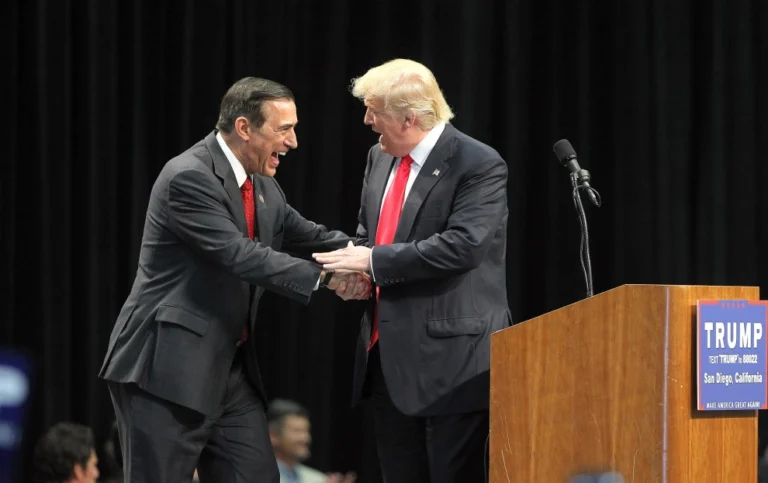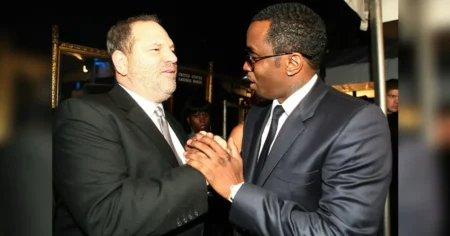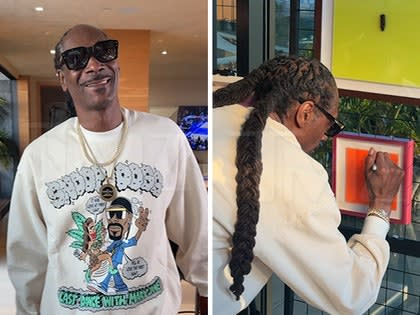Rep. Darrell Issa, a Congressman from California, has come to President Donald Trump’s defense regarding the use of the Department of Justice (DOJ) to investigate his political adversaries. In a recent interview on “TMZ Live” Thursday, Issa addressed concerns over Trump’s alleged weaponization of the DOJ during his first term, particularly when it came to investigating former officials who later became outspoken critics of his presidency. Issa’s defense, however, quickly turned into a broader discussion about presidential power and the actions of both Trump and Joe Biden in similar circumstances.
Issa’s Argument: Trump and Biden’s DOJ Use Are Alike
In his conversation with TMZ hosts, Issa downplayed the severity of Trump’s actions, comparing them to what he sees as similar behavior from President Biden. Issa stated that the DOJ’s investigations into Trump, particularly those conducted under Biden’s administration, were no different than what Trump had done in his own presidency.
“It’s all a matter of perspective,” Issa remarked. He argued that every presidency is scrutinized, and allegations of weaponizing the DOJ to target political opponents have been a part of American politics for decades, transcending partisan lines. The Congressman believes that both Trump and Biden have used the power of the DOJ in ways that benefit their political interests, making the situation not as extreme as some critics suggest.
Issa continued to emphasize that the issue at hand is not unique to Trump but rather a byproduct of the partisan nature of modern politics. According to Issa, both parties have their own version of these contentious political tactics, and it’s not a new development in the American political landscape.
Pushing Back: A Debate on Power and Ethics
TMZ hosts pushed back against Issa’s defense, suggesting that Trump’s actions seemed more extreme, with a clear pattern of using government agencies to silence or discredit political foes. The hosts questioned whether it was healthy for a president to direct the DOJ in this manner, particularly in a democracy where checks and balances are meant to prevent such overreach.
Issa, however, remained steadfast in his position. He argued that while it may seem like an unprecedented move, every presidency has its moments where the line between political influence and proper governance becomes blurred. He pointed out that the actions of both Trump and Biden can be subject to criticism, but he insisted that it’s important to view them within the broader context of history.
A Healthy Debate on Presidential Power
Despite the tensions in the conversation, Issa’s points did bring an interesting perspective to the table. He acknowledged that every presidency, regardless of party affiliation, has faced scrutiny for using government institutions like the DOJ to further its political agenda. The conversation, though heated, underscored the complexities of power and the influence that presidents hold over government agencies.
In the end, Issa suggested that the ultimate responsibility lies with Congress and the courts to keep a check on presidential power. He emphasized that the balance of power between the branches of government is vital to ensure accountability and that the nation’s democratic institutions must do their job to maintain transparency.
A Continuing Debate
This debate about the DOJ’s role in political investigations is far from settled, and it’s clear that both sides of the political spectrum will continue to argue about the boundaries of presidential authority. As the nation watches these legal battles unfold, the discussions surrounding political influence, government agencies, and the ethics of leadership remain central to the broader political conversation.
For now, Issa’s defense of Trump’s actions reflects the ongoing polarization in American politics, where similar actions by opposing leaders are often seen through dramatically different lenses. Whether the actions of Trump and Biden are truly comparable remains a contentious issue, but the debate about the role of the DOJ in investigating political figures is one that will continue to dominate headlines for the foreseeable future.







